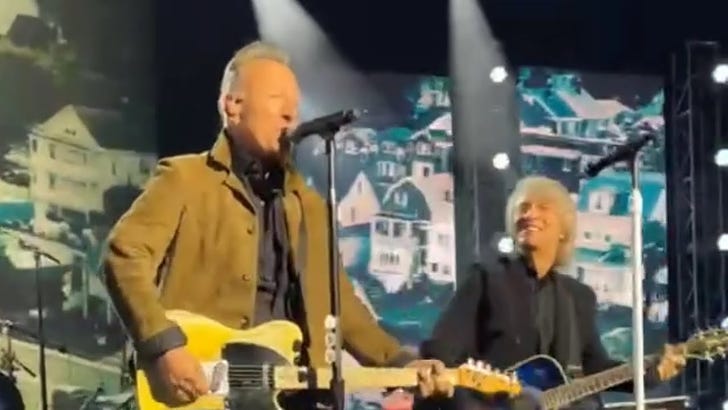Bon Jovi is back in the news.
Hollywood handsome, leading the band that bore his name, Jon Bon Jovi was the face of American rock rising on MTV in the mid-to-late 1980s.
On April 26, Hulu debuts a four-part documentary series Thank You Good Night: The Bon Jovi Story. The film debuted at South by Southwest Film Festival in Austin last month. If the critics raved, it would be a surprise, because the critics never liked the band Bon Jovi's music. "Pop-metal; hair band" many sneered in collective derision, even as Bon Jovi's albums sold tens of millions of albums and packed arenas and stadiums around the world in a never-ending tour that made them richer than rich but nearly broke their spirit.
During the Grammy award weekend, on Feb. 2, 2024, Jon Bon Jovi was honored at a gala as the MusicCares Person of the Year. This award acknowledges those who maintain the goals of the music industry's primary charitable organization, which provides medical and mental health services, addiction and …
Keep reading with a 7-day free trial
Subscribe to Critical Conditions by Wayne Robins to keep reading this post and get 7 days of free access to the full post archives.



